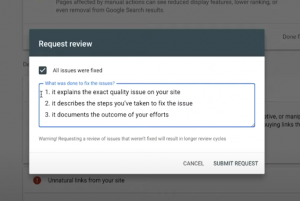Loneliness sucks. But we’ve all felt it.
It’s the feeling we get when we think that that no one understands what we are going through, who we are, and the dreaded belief that we’re alone in this world.
It’s the feeling of being unwanted, uncared for, and unconnected with the world around us.
Maybe you went through a break up, moved to a new city, or maybe you’re focused on a career path that no one seems to understand…
Some of us choose to admit it, and some of us hide it through a sea of artificial relationships.
It seems the older we get, the more these feelings arise in our lives.
But often, loneliness can be controlled.
Loneliness isn’t something that is brought upon us.
Loneliness is something that we bring upon ourselves.
“We’re all islands shouting lies to each other across seas of misunderstanding.”
― Rudyard Kipling
Solitude Vs. Loneliness
Although used interchangeably, there’s a significant difference between solitude and loneliness.
Loneliness is a negative state, marked by a state of isolation. Solitude is a positive and constructive state, marked by a state of engaging with oneself.
Loneliness is derived from a harsh, punishment state of excess isolation, resulting in an increase risk of premature death. Solitude comes from self-reflection, inner searching and growth, which results in replenishment of our minds.
Loneliness is imposed on you from the outside.
Solitude is chosen by you from the inside.
It’s important to make this distinction because we often mistaken solitude for loneliness. Understanding which state you are in will determine whether you should embrace your state or fight it.
How do we overcome loneliness?
1. Stare loneliness straight in its eyes
The first thing you should do is recognize your loneliness. This may often be the hardest part for most of us, because it’s a difficult state to face.
Admiting that you’re lonely isn’t something to be ashamed of.
This isn’t an Alcohol Anonymous meeting, where you’re facing something that society deems as shameful, nor are you admitting it to anyone else, but yourself.
There could be a hundred reasons to explain our loneliness. But admitting it is the first step.
2. Learn to enjoy yourself
Understand that loneliness is simply a state of mind that can be shifted.
The biggest difference between loneliness and solitude is that the latter is about enjoying being with oneself.
When you love yourself enough to give yourself time alone in order to self-reflect, learn, and grow — you’re choosing to be alone, not being left alone.
Meditating I’ve found is the best solution for this. It allows us to control our thoughts, uncloud our judgements, and even laugh at ourselves more.

3. Build bridges, not walls
Many of society’s most brilliant minds struggle with loneliness because it’s difficult for them to relate intellectually nor emotionally with average individuals.
In other words, the root of loneliness is the lack of connection we feel with another human being.
Truthfully, this is a choice we make. Not just once in awhile, but every second we process our thoughts.
We can always choose to focus on the similarities that unite us, or decide to focus on the differences that separates us.
As human beings, there’s always something we can relate to one another.
Values, hobbies, goals, family, love, wacky habits — the list goes on.
You can choose to build bridges to connect with one another, or you can put a wall to face loneliness.
Choose to build bridges.

4. Join a tribe
Whatever interest you have, wherever you live in the world, there’s always a tribe that you’re able to connect with. That’s the beauty of the Internet.
It could be an online mastermind that you join, a regular meetup community that you attend on Meetup.com, or a group of people you bring together yourself.
Whichever floats your boat, envision who your ideal tribe of people could be, and find a way to belong in that tribe.

5. Be grateful
As simple as this sounds, practicing gratefulness is a game-changer.
In one study, one group of participants were asked to name five things they’re grateful for every day, while another group was asked to list five hassles. Those expressing gratitude were not only happier and more optimistic, they reported fewer physical symptoms (such as headache, cough, nausea, or acne). Other gratitude studies have shown that those with chronic illnesses demonstrate clinical improvement when practicing regular gratitude.
Expressing gratitude for what we have shouldn’t be done once a year, when Turkey is served on the dinner table.
It should be a mantra we follow everyday.
It’s as simple as writing down three to five things you are grateful everyday in a journal. It could be anything — the health of your parents, your own health, your partner, the future, etc.
If happiness is the muscle we want to build, then gratitude is the workout exercise we must perform in order to achieve it.
What are you grateful for today?

Hope you enjoyed this article.
What I ask is for you to share this with one person that will benefit from reading this, and help fight loneliness.
(317)










